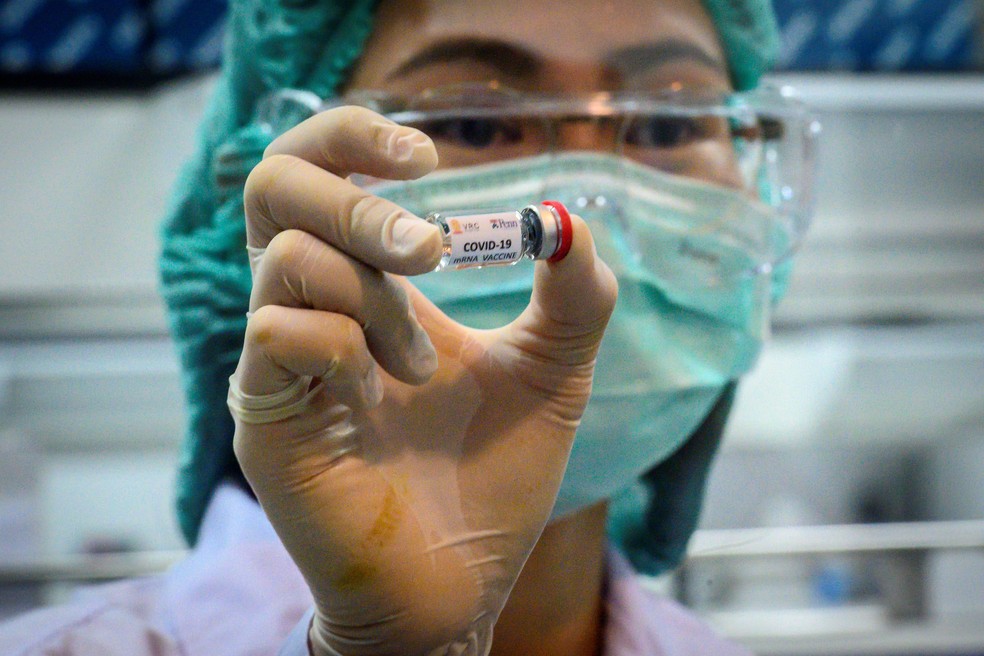RIO DE JANEIRO, BRAZIL – Dimas Covas, director of the Butantan Institute, said yesterday, August 6th, that a vaccine against Covid-19, the disease caused by the novel coronavirus, could be available for production in October.
To be released to the population, it will require the approval of the National Health Regulatory Agency (ANVISA), which is responsible for registration.
In June, the Butantan signed a partnership agreement with Sinovac, a Chinese pharmaceutical company, for the production and advanced testing of a vaccine. The statements were given at an online public hearing of the Chamber of Deputies to discuss the vaccine’s progress.

The vaccine is currently being tested in approximately 9,000 volunteers in six locations – São Paulo, Paraná, Rio Grande do Sul, the Federal District, Minas Gerais, and Rio de Janeiro – under Butantan coordination and monitoring.
Should the vaccine be clinically successful, Butantan will submit it for registration at ANVISA. If approved by the agency, it may be distributed to the SUS (National Health System) through the federal government.
“We may have the vaccine as from October. The preparation process for the formulation and filling has already begun. All quality control and validation processes have already been initiated. So, we may have the vaccine.
“The main question is whether it will be registered and approved by the clinical trial and whether it can be used. I am very optimistic. I think a reasonable timeframe would be January 2021 given the performance so far,” said Director Covas.
Gustavo Santos, general manager of medication and biological products at ANVISA, said the agency has expedited and relaxed processes amid the pandemic to meet demands.
In the vaccine’s case, he said there is a 60-day period for the analysis of a registration request after the delivery of the required documentation by the interested party, but the assessment will be a priority and should happen in a shorter period of time.
“The assessment for the registration is precisely the risk-benefit balance, to check if the benefits outweigh the risks. We have to rely on valid scientific results,” he explained.
The Butantan Institute says there is no need to fear the ‘China vaccine’
Butantan’s director said there was no cause for concern over the fact that part of the vaccine comes from China. The coronavirus first emerged in Wuhan, China, before it spread throughout the world.
“There’s no reason to dismiss the vaccine because it was first developed in China,” he said.
Last week, President Jair Bolsonaro stressed the merits of the Covid-19 vaccine candidate developed by Oxford University and the AstraZeneca pharmaceutical company in the United Kingdom and tested in Brazil in partnership with the Fiocruz (Oswaldo Cruz Foundation).
“It is not the one from that other country. Okay, everyone?” he said.
Covas stressed that AstraZeneca operates a large industrial complex in China and the Asian country has been outstanding in the production of scientific knowledge for years.
The Health Monitoring Secretary of the Ministry of Health, Armando Medeiros, said the portfolio’s commitment “is to Brazilian public health”. He added that the government is “willing to talk, advance and acquire the vaccines that come first,” and stressed that it trusts in Butantan’s capacity to develop the vaccine.
Dimas Covas described the partnership with Sinovac as a “win-win” for both parties. The Chinese industry will hold the patent for the attenuated coronavirus and Butantan will hold the full clinical trial. The aim is to sign agreements to supply the vaccine to other countries, particularly in Latin America, he said.
Butantan is expected to require at least R$130 million (US$26 million) in equipment and technology investments to increase its production capacity. A fundraising program has been launched by the São Paulo state government. The director said the final cost of the vaccine is being assessed but should be approximate to or below what has been observed in other agreements.
Source: UOL

